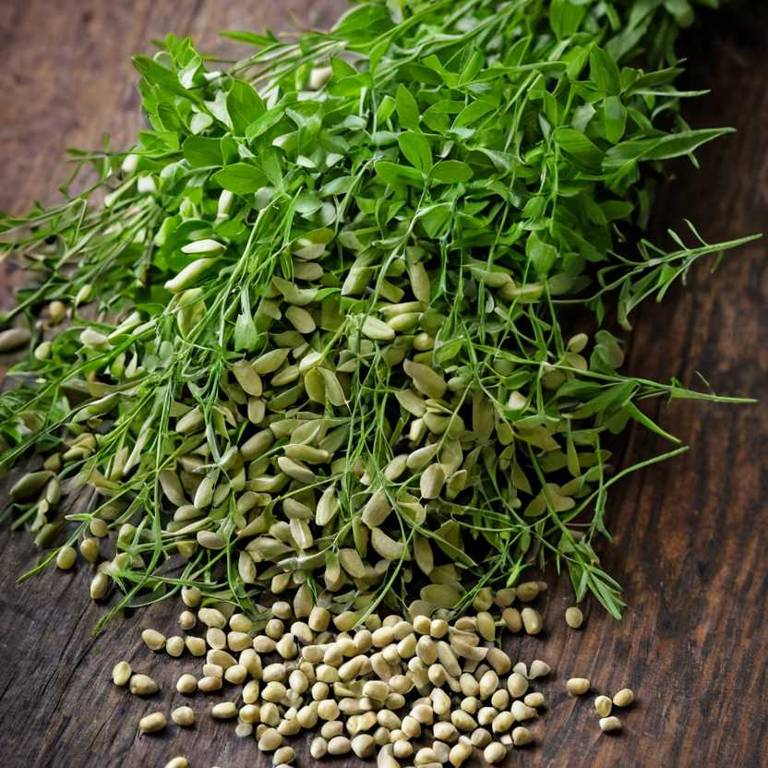By Leen Randell
Updated: Jul 05, 2024
What Are The Medicinal Properties Of Baptisia Tinctoria (Wild Indigo)?

Baptisia tinctoria, also known as wild indigo, has health benefits such as antimicrobial, anti-inflammatory, and antiviral properties.
The medicinal constituents of this herb include isoflavones, isoflavans, and coumarins, which contribute to its therapeutic effects. Traditionally, the roots and leaves of Baptisia tinctoria are prepared as teas, tinctures, and infusions. Possible side effects include allergic reactions, digestive issues, and interactions with certain medications.
Precautions include pregnant women and children using this herb under medical supervision, as well as those with sensitive skin or allergies.
This article explains the health benefits, active constituents, medicinal preparations, possible side effects, and precautions related to Baptisia tinctoria.
- What are the health benefits of Baptisia tinctoria?
- What are the active constituents of Baptisia tinctoria?
- What are the medicinal preparations of Baptisia tinctoria?
- What are the possible side effect of using Baptisia tinctoria improperly?
- What precautions to take when using Baptisia tinctoria medicinally?
What are the health benefits of Baptisia tinctoria?
Baptisia tinctoria, also known as wild indigo, has health benefits such as anti-inflammatory and antimicrobial properties, which may aid in wound healing and skin issues.
Its root has been traditionally used to support the lymphatic system and alleviate symptoms of infections like Lyme disease.
Some research also suggests that it may have immunomodulatory effects, which could help regulate the immune system and prevent diseases.
Here's a detailed article about the 10 health benefits of Baptisia tinctoria.
What are the active constituents of Baptisia tinctoria?
Baptisia tinctoria, also known as wild indigo, has active constituents such as isoflavones, coumarins, and indole alkaloids, which contribute to its medicinal properties.
The plant's roots are particularly rich in these compounds, which have been traditionally used to support the immune system and relieve symptoms of upper respiratory tract infections.
The isoflavones may also exhibit anti-inflammatory and antioxidant effects.
Here's a detailed article about the 10 active constituents of Baptisia tinctoria.
What are the medicinal preparations of Baptisia tinctoria?
Baptisia tinctoria, also known as wild indigo, has medicinal preparations such as decoctions, infusions, and tinctures.
The root is typically used for its anti-inflammatory and antimicrobial properties, often used to treat skin conditions like eczema and acne. The plant's extracts may also be used to soothe digestive issues and as a natural remedy for wounds and ulcers.
However, its use is cautioned due to potential allergic reactions and interactions with other medications.
Here's a detailed article about the 10 medicinal preparations of Baptisia tinctoria.
What are the possible side effect of using Baptisia tinctoria improperly?
Improper use of Baptisia tinctoria, also known as wild indigo, increases the chances of experiencing side effects such as dizziness, headaches, and nausea.
In some cases, it may also cause allergic reactions, including skin rashes and itching. Additionally, high doses of the herb may lead to gastrointestinal issues, such as diarrhea and stomach cramps.
It's essential to consult a healthcare professional before using Baptisia tinctoria to minimize the risk of adverse reactions.
Here's a detailed article about the 10 most common side effects of Baptisia tinctoria.
What precautions to take when using Baptisia tinctoria medicinally?
Before using Baptisia tinctoria, also known as wild indigo, for medicinal purposes, you must take precautions such as consulting with a qualified healthcare practitioner to determine safe dosages and potential interactions with other medications.
Additionally, use high-quality, organic, and freshly dried or freshly made extracts to avoid contamination and maximize efficacy.
Pregnant or breastfeeding women, as well as individuals with allergies or sensitivities, should exercise caution and consult with a healthcare professional before using wild indigo.
Here's a detailed article about 10 precautions to take when using Baptisia tinctoria.